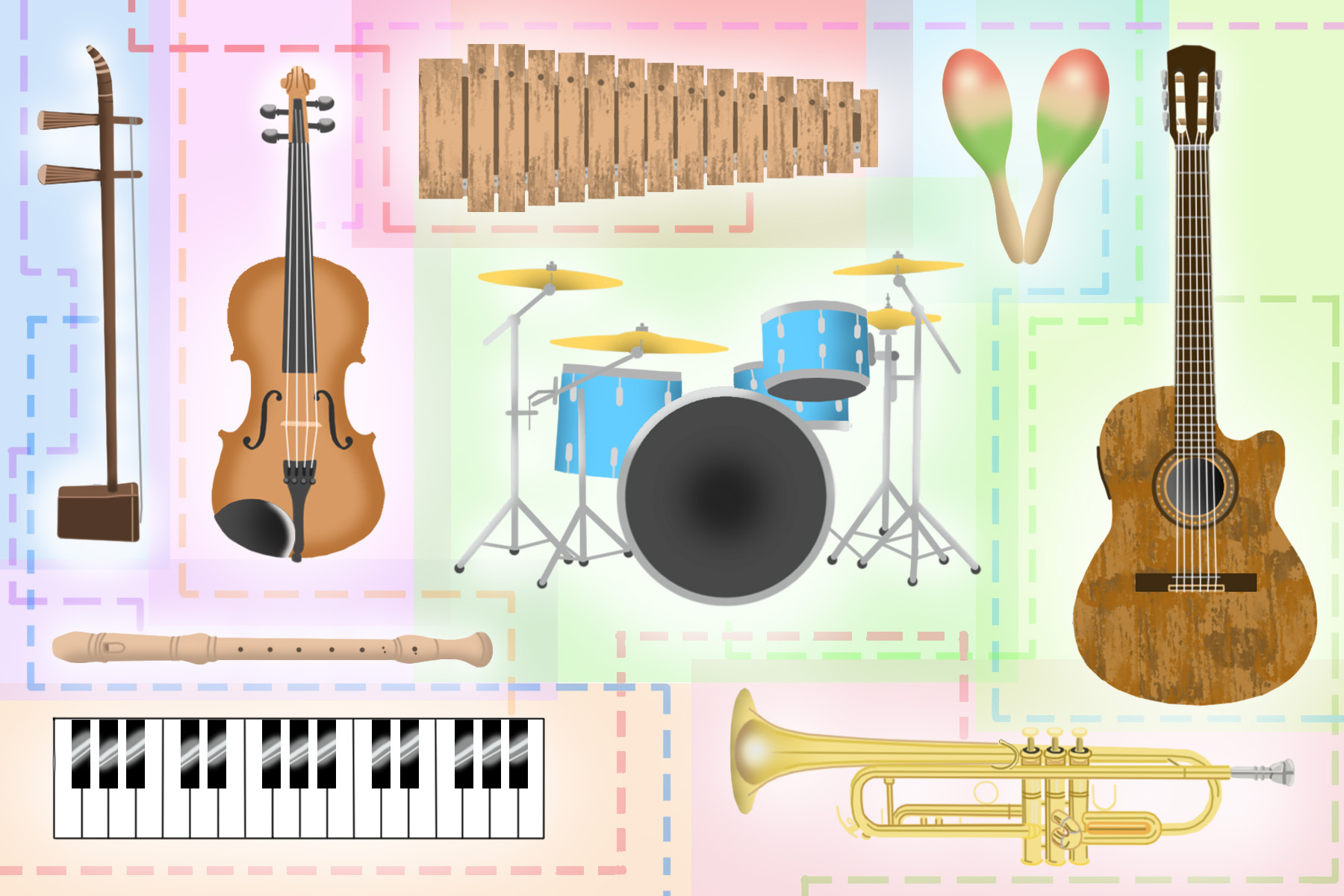Learning a musical instrument can bring many benefits, including improving your memory and making you the life of the party. If you’re looking for an enjoyable activity to fill your spring and summer breaks, picking up an instrument is the perfect choice. Here we’ll discuss some of the advantages of playing an instrument and tips for choosing the right one.
Improve Your Memory
Playing a musical instrument requires memorizing notes and beats, which can help develop active memory and enhance recall. By constantly summarizing memory rules during the learning process, learners can achieve more efficient memory, making it easier to learn and remember new things.
Studies show that children who learn how to play musical instruments perform better in memory tests than those who don’t. Researchers have found that musical instrument training activates key brain networks involved in cognitive and auditory processing, leading to improved memory function. In particular, the frontoparietal control network, left inferior frontal gyrus and left superior marginal gyrus show increased activity in individuals who have received musical instrument training.
Make Friends
Learning to play a musical instrument not only offers personal benefits, but can also help you connect with others and build lasting friendships. When you share a common interest in music, it becomes easier to connect with like-minded individuals. Many colleges have music clubs and bands, which can provide a platform where you can meet and collaborate with other musicians who share similar interests.
If you play an instrument like the electric guitar or bass, you can join a band and play with people who enjoy the same type of music as you. It’s also possible to improvise and create your own music, which can be a great way to express yourself creatively while connecting with others.
Furthermore, learning to play a musical instrument requires coordination and collaboration, which can improve your social and teamwork skills. Whether it’s playing in an orchestra, band or choir, working with others to create beautiful music can be a rewarding experience. For instance, in a rock band, each instrument has a unique role to play in the overall sound. The bass guitar provides auxiliary support, the electric guitar is responsible for the solo part, and the drums provide rhythm for the entire song. Playing in a band can teach you how to coordinate with others and enhance your teamwork skills, all while enjoying the experience of making music with new friends.
Relieve Stress
Studies have shown that playing a musical instrument can effectively reduce stress levels. In a world where we are constantly bombarded with notifications and updates from our phones and computers, playing an instrument provides a much-needed break from technology and allows us to focus on the present moment.
When you come home after a hectic day at work or school, playing an instrument can be a great way to unwind and relax. Whether it’s strumming a guitar or playing a piano piece, the beautiful melodies can calm your mind and ease your stress.
With all these benefits, it’s important to choose the right instrument. Here are some suggestions to help you choose the right one for you.
Choosing an Instrument
When it comes to choosing a musical instrument, your interests can be your best guide. The style of music you enjoy listening to is an important factor in determining which instrument to pick up. For example, if you’re a fan of rock bands like Oasis and Guns N’ Roses, learning to play the electric guitar is a great option. On the other hand, if you prefer Western classical music, you may want to consider learning to play the piano or trumpet. If you enjoy Eastern music, instruments like the Guzheng or Erhu may be a good fit. Ultimately, the kind of music you enjoy listening to will play a big role in helping you decide on the right instrument for you.
Considerations of money and time are also crucial when choosing an instrument.
If you have more financial resources, you may opt for a pricier instrument like the piano. Additionally, you should consider how much time you have to practice. If you have a packed schedule and limited practice time, it may be wise to choose an easier instrument like the ukulele over a more challenging one like the lute.
Piano
The piano is an excellent instrument for beginners, regardless of age. Playing the piano enhances one’s ability to read sheet music, recognize notes and chords and develop a strong sense of rhythm. This versatile instrument covers a wide range of musical genres and helps to improve skills in solfeggio and ear training, as well as overall musicality.
Guitar
Guitars, whether electric or classical, provide access to a variety of musical styles. This popular instrument is beloved worldwide and is highly versatile, making it suitable for accompaniment, playing, and singing. Guitar options include classical guitars with nylon strings, acoustic guitars with metal strings and electric guitars.
Woodwinds
Woodwind instruments, known for their soft tones, are relatively easy to play and require less pitch precision than string instruments. They are a great option for those who love music. From a technical standpoint, wind instruments require strong breath control and proper mouth placement. It is recommended to seek guidance from a professional teacher to determine whether a wind instrument fits your lung capacity and mouth structure well.
Violin
The violin is one of the most popular instruments in the classical music world, but many others allow you to play chamber music in a symphony, philharmonic, quartet or even a duet. Brisbane violins are also widely used in pop, folk and rock music today. In the world of stringed instruments, the violin can be considered a versatile solo instrument. It’s easy to carry, allowing you to play it in any situation, and its range is very wide.
Drums
Finally, there is the popular drum kit. Playing the drum kit requires coordination of the limbs, hands and feet, as well as stellar timing. It also requires the separation of limbs, as the rhythm of the hand and the rhythm of the foot are different. The charm of the drum kit lies in its exciting rhythms; they make people feel warm, enthusiastic and energetic. If you have good limb coordination and enjoy hard percussion, a drum kit is definitely a good choice for you.

















